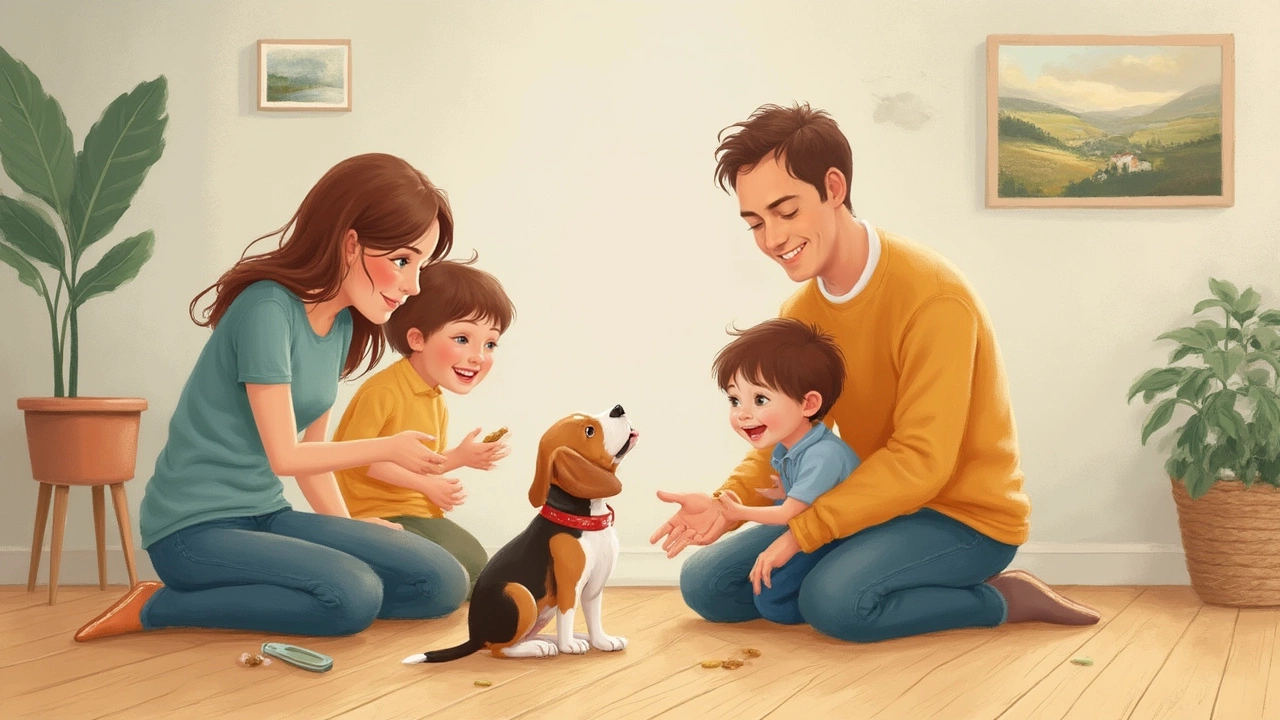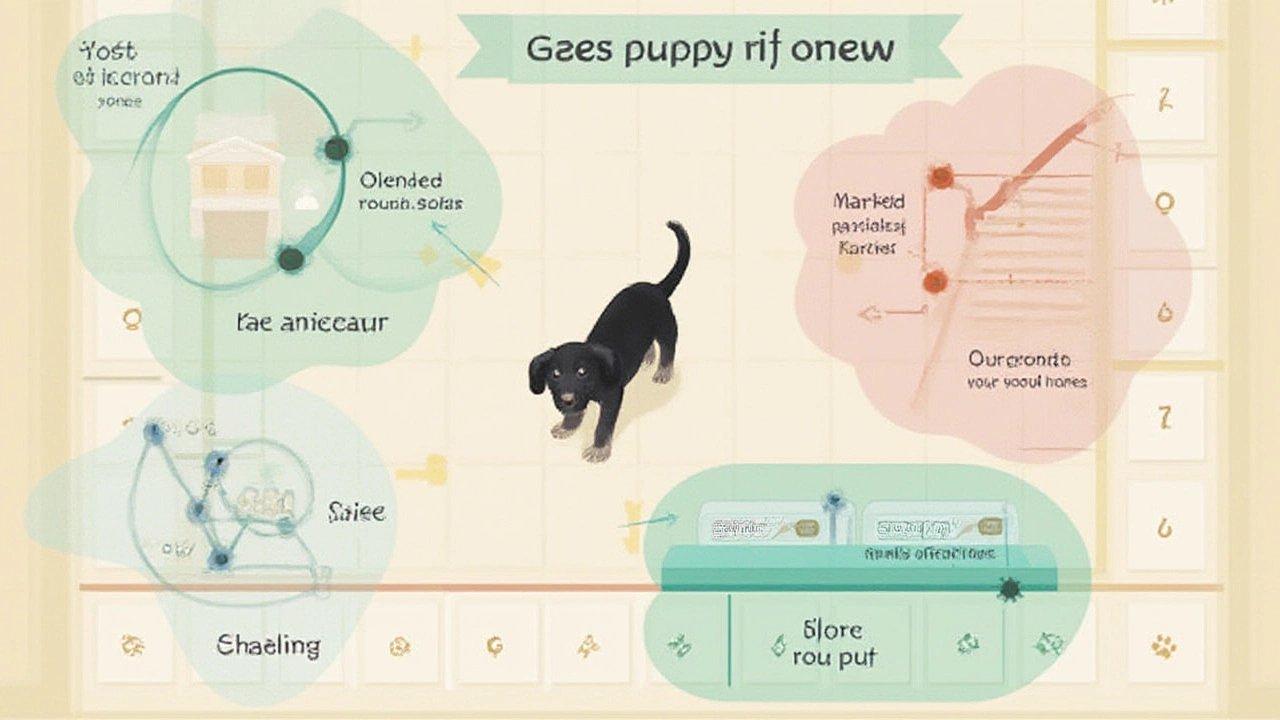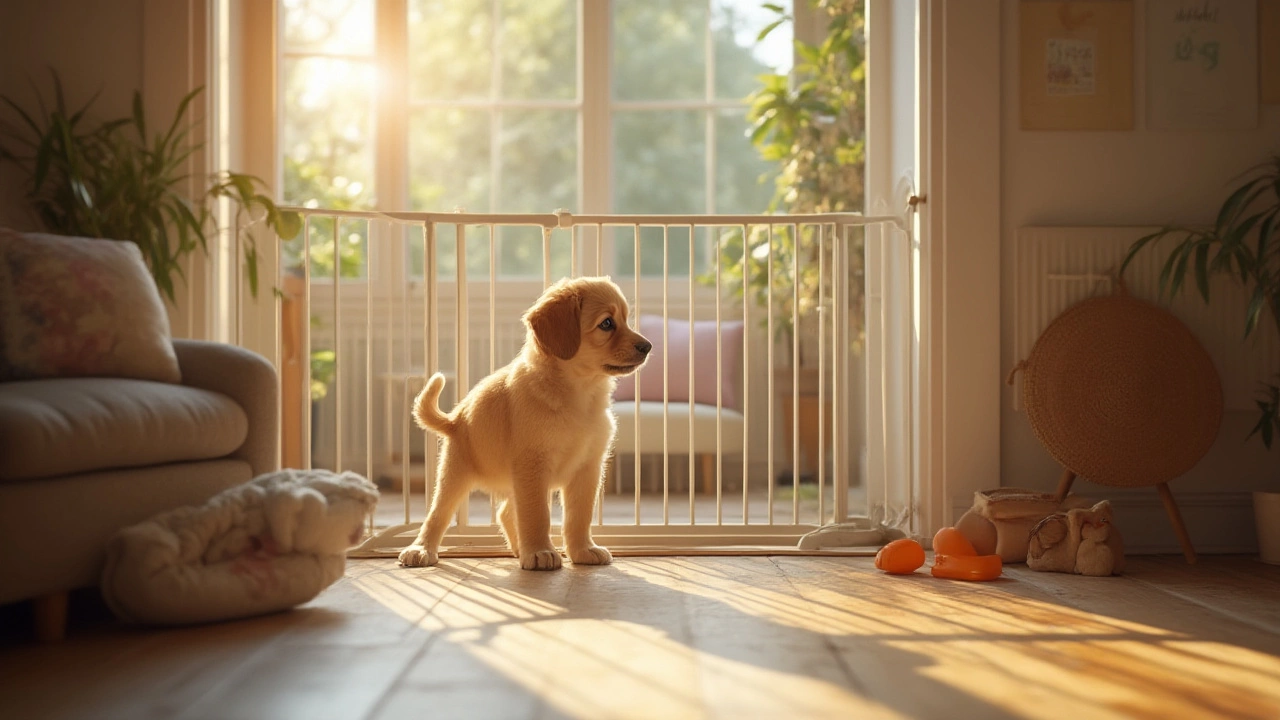You bring home a wiggly, floppy-eared ball of fluff, and suddenly every room seems off-limits. Shoes tossed on the floor? Chewed. Cords behind the couch? A taste-test waiting to happen. Puppies have a knack for chaos, and the internet is full of horror stories—think chewed baseboards, surprise puddles, and one epic tale involving a mangled TV remote. Still, the question nags at every new puppy parent: When can I finally trust my puppy to roam the house?
What Makes a Puppy Ready to Roam?
Not all puppies hit milestones at the same age, which is part of the hassle (and fun) of raising them. Some will master house rules like tiny prodigies, while others test patience daily. The main things that matter? Think potty training, chewing, and impulse control. Most puppies don't have full bladder control until about 6 months old, though some sneak by earlier, while others lag behind. Completely accident-free for one whole month (yes, 30 days!) is a good sign your pup's got it down. Chewing goes hand-in-hand: if you leave shoes out and they're untouched, you might be in the clear.
The American Veterinary Medical Association points to three important benchmarks: consistent house-training, chewing restrictions, and being able to settle down for short periods alone. Dogs aren't born with the wisdom to avoid electrical cords; it takes training and time. If your puppy's still staging wild jailbreaks from the crate or playing Houdini with the baby gate, they're probably not ready for full access.
Creating a Puppy-Safe Home: The Essential Checklist
Letting your puppy roam shouldn’t be a leap of faith—it’s more like slow-motion trust-building. Before you even think about freedom, start with serious puppy-proofing. You can't puppy-proof the entire house blindly, so walk room by room at puppy-eye level. That power bar behind the TV? Unplug it or tuck it away. Plants can be toxic—like lilies or sago palms—so go through the house and relocate anything risky. According to the ASPCA, more than 214,000 pets a year are exposed to poisonous plants and substances.
Trash cans need lids or need a new home in a closet. Medications must never be stored where curious paws can tip them over. Kids’ toys, remote controls, and anything smaller than a tennis ball can be a choking danger. For extra peace of mind, baby gates work wonders, allowing you to give your puppy more access one room at a time. Don't forget to stash away those shoes and socks. Puppies are like tiny sock-seeking missiles.

The Slow Freedom Formula: Gradually Expanding Access
Suddenly letting your puppy have free run of the house is like tossing a toddler into a supermarket and expecting them to know not to eat chocolate bars off the bottom shelf. The real trick is gradual expansion. Start by letting your puppy hang out in a single room with you, then try longer stints alone in that room. If that goes well, open up an adjacent space—maybe from the kitchen to the living room. Watch your dog’s behavior like a hawk: if you come back to find your slippers intact and no potty messes, that’s progress.
Crate training is your best friend. The crate isn’t a prison—think of it as your puppy's bedroom, a safe spot when you can’t supervise. According to a University of Lincoln study, dogs who were crate-trained as pups adapted better to short periods alone and showed less separation anxiety. Combine that with playpens or puppy gates for times when your attention’s elsewhere—like, say, when you’re Zooming and trying not to yell “drop the sock!” every five minutes.
Common Training Pitfalls: What Trips Most People Up
Half the battle is not rushing the process. You might think your puppy’s nailed it after three days without accidents, but that’s barely a weekend. Even older dogs can regress in new surroundings or when routines change. Giving too much freedom too soon leads to surprises—like my friend Ashley, whose energetic goldendoodle found a new career as a ‘wallpaper remover’. Patience is boring but life-saving.
Punishing accidents doesn’t help, either. If your dog messes up, quietly clean it with an enzymatic cleaner and try to pinpoint what went wrong. Maybe you left them unsupervised for too long, or maybe they’re just not ready. Praise matters more than scolding. And remember: barking, biting, and chewing aren’t always mischief. Sometimes, they’re signs of anxiety, boredom, or teething. Genuine redirection and ample exercise go a long way. Reward the moments when your pup chills out or chooses their toys over your sneakers. Leave temptation off the floor, and don’t underestimate how clever (and stubborn) puppies can be.

Signs Your Puppy Is Ready—and When to Hold Back
Gradually, you’ll spot all the right clues: your puppy goes weeks without accidents, ignores floor clutter, and snoozes happily in the sunbeam instead of plotting mad dashes. You’ll catch yourself relaxing instead of bracing for disaster every time you leave the room. That’s when you can let your puppy roam more freely—but stay cautious. Keep an eye on stress triggers, like guests, storms, or big schedule changes.
Vet clinics see plenty of puppy mishaps, but the top hazards are still swallowing odd objects and getting into cleaning supplies or medicines. I always use a checklist (mentally, at least): No accidents for over a month? Check. No chewing on forbidden stuff for weeks? Check. Calm with alone time? Check. Still, I limit new access in the evenings, when puppies are most energetic. And if you spot any behavioral backsliding—the sudden return of accidents or chewing—dial things back and retest later.
| Milestone | Recommended Age | Ready for Roaming? |
|---|---|---|
| Consistent house-training | 5-7 months | Yes, start gradually |
| Chewing control | 7-12 months | Partial, with supervision |
| Can settle alone | 4-8 months | Yes, for brief periods |
As wild as puppies can be, the freedom to roam is the reward for tons of training, patience, and creative problem-solving. Take your time, adjust based on your puppy’s behavior, and celebrate every small victory—because soon enough, chaos fades into cuddles, and your house becomes your puppy’s home, not just their playground.
